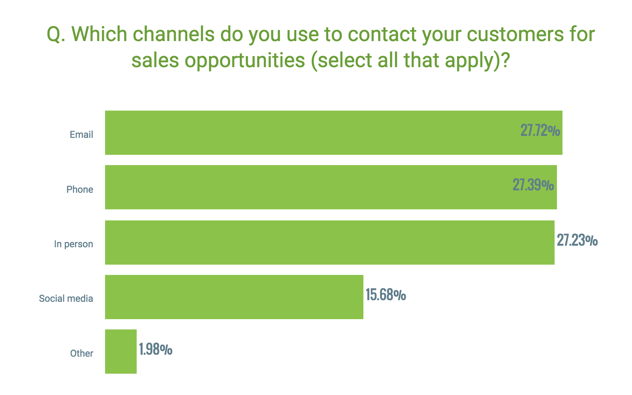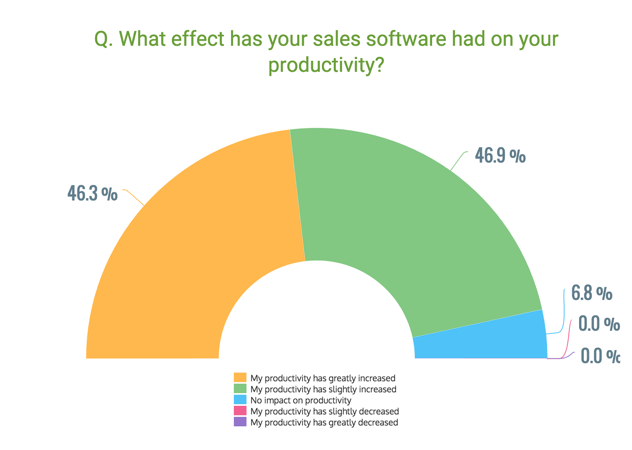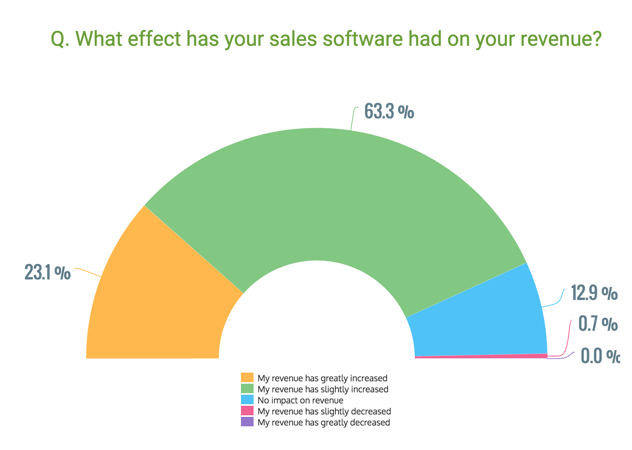
We recently spoke with Karen McCandless, market researcher at GetApp (a sales management software review company) about her latest study, which sampled 250 sales professionals and 200 consumers. The study sought to uncover today's key challenges for salespeople as well as what successful salespeople are doing to overcome those problems.
Q: Of the hundreds of salespeople you surveyed, one thing seemed clear: there's a problem with most of their processes and pipelines. What did you uncover?
A: "According to our research, 67% of sales professionals admit that their sales strategy needs major improvement to help them generate leads. One of the issues is that many businesses focus more on the quantity of leads rather than on quality, treating all leads as equal. What salespeople (and very likely, the direction they're receiving from management) are often lacking here is a full-picture understanding of which leads should be their focus, and which are a waste of time.
"In addition, sales professionals are failing to take advantage of important touchpoints with customers, such as social media. More than a quarter (27%) still use the phone as a primary point of contact, with the same percentage making in-person visits. Only 15% leverage social media to engage with potential leads, which adds up to a lot of lost opportunities to sell to today’s connected buyer."

Q: Did the respondents suggest anything that might help alleviate the problem they're facing?
A: "One aspect which might help alleviate the problem is through more (or better) training, with 92% of respondents saying that training has increased their selling abilities. Training needs include the ability to better listen to and engage with customers, and a deeper understanding of how to better tailor their selling approach according to the information the customer provides.
"However, sales training on its own is not enough; sales professionals also need the right tools to do their job, keep themselves organized and on-track, and help customers make the best buying decision that suits their needs."

Q: You also surveyed about 200 consumers on their sentiments of the buying/selling experience, so in terms of improving abilities through training, what gap(s) could be filled on the customer side?
A: "According to our survey, only 1% of respondents believe that customer service is the most important factor when making a purchase. However, instead of rushing out to adjust pricing strategy, you should think about the reason behind this. Consumers will default to price as a differentiator when there are no other clear ways to distinguish between companies and brands.
"There is now a great opportunity for salespeople to shape the customer’s shopping journey by becoming an expert in the product they are selling and getting to know their customers better in order to provide personalized customer service. By doing this, they can make their company stand out and give customers a reason to buy their products, instead of their competitors."

Q: Sales professionals have some of the busiest daily schedules, so how would you suggest they improve if they don't feel like they have the time to begin with?
A: "A huge percentage of our respondents were singing the praises of using sales software. Of the two thirds (66%) of respondents that are using sales software, 86% have been able to increase revenue, nearly 93% have boosted their productivity, and 78% have seen an increase in customer satisfaction.
"Areas in which sales management software has helped include automation of manual processes, better insight into issues, and the ability to respond to customers in a more timely manner. With one of the dozens of options of sales software in place, salespeople would be able to free up valuable time to better serve customers and truly put them at the center of their sales process."
As Karen shared, sales enablement software (such as a CRM) is an important tool that sales managers can pair with training to give their teams what they need to succeed.



